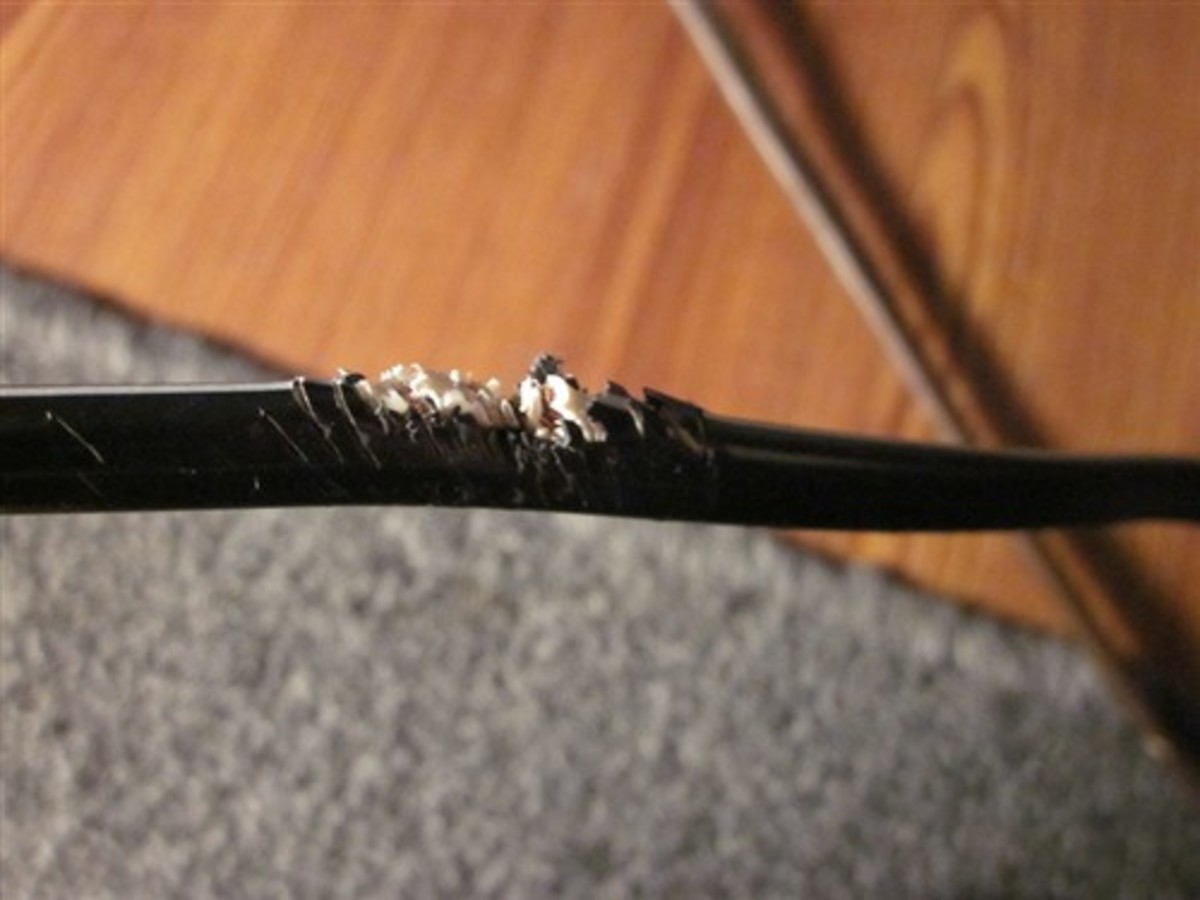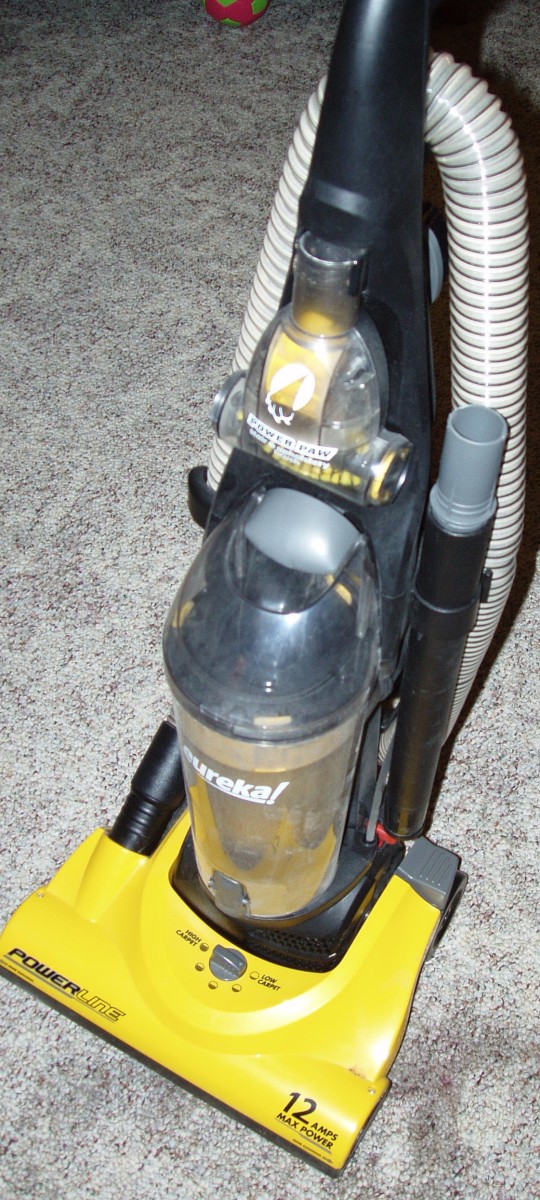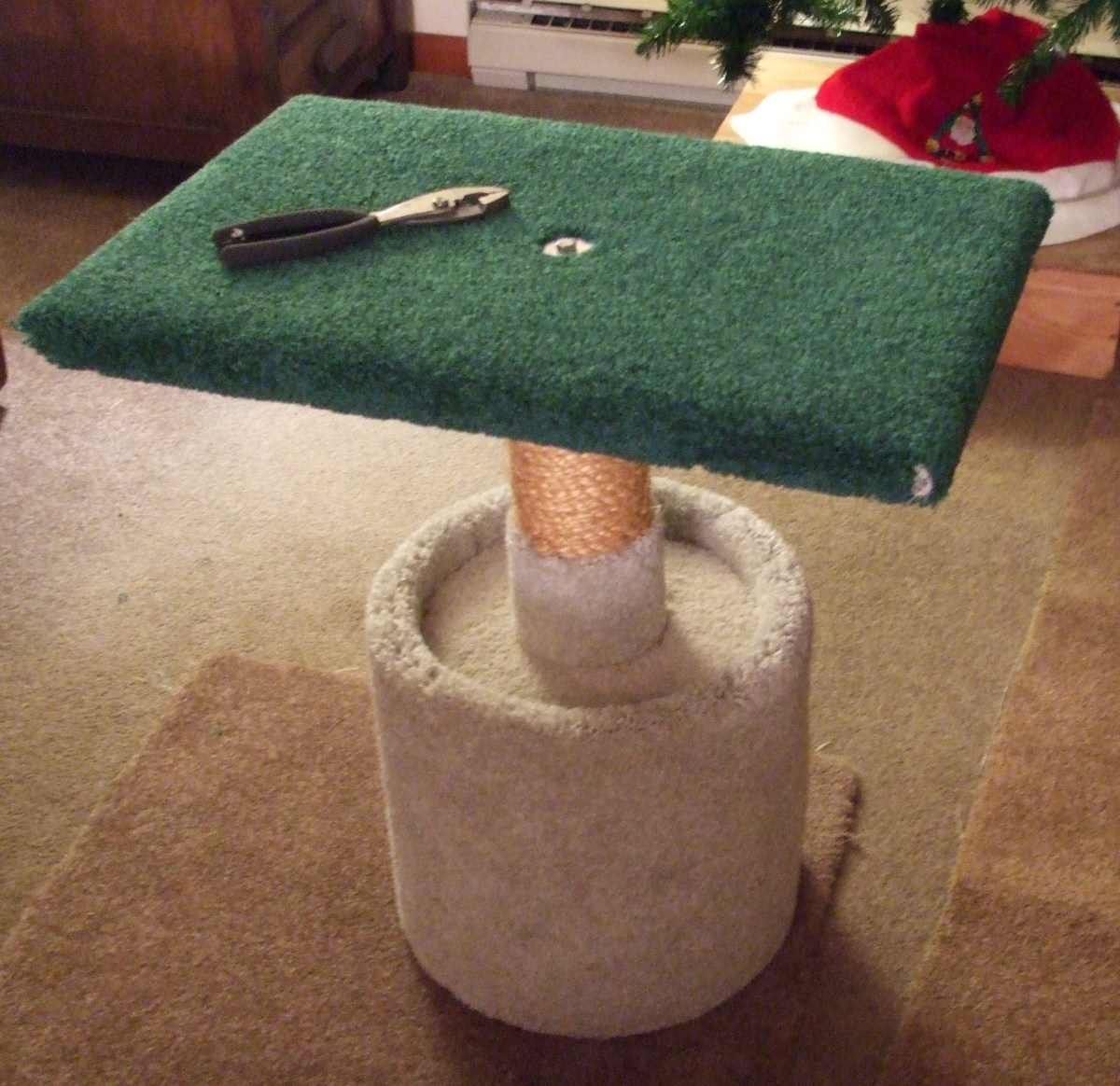Technology Won't Enslave Us. We Already Volunteered for the Job
I recently wrote a hub about my dream home theater setup and
followed that up with another one on an unrelated topic. Though they were about
different things, they did share one thing in common and that's that they both
deal with technology. The first was written because I was in a
wouldn't-it-be-cool-if-I-could-have-all-these-gadgets mood and the second was
written because I got distracted during a late night at the office and wondered
why every cleaning person who walked by my office had a backpack vacuum cleaner
strapped to him but you never see these things in homes (we all seem to prefer
upright or pull-behind canister models). Yes, I'm the type who is easily
distracted. Anyway…
Now, with the day job done and the clock rapidly approaching 2AM, I'm sitting at home thinking some more and that's prompting me to ask the question, is technology really a good thing? On the surface, I can immediately answer that it isn't because I'd probably be a lot healthier, better rested and not addicted to caffeine if thoughts about technology didn't have me writing a new hub at 1:30 in the morning. But immediate thoughts aside, I decided to think about this a bit deeper thanks to those two previous posts and I've come to a conclusion; the advancement of most technology is probably the worst thing to ever happen to the human race. Don't believe me? Let's go back to that stupid backpack vacuum cleaner as the perfect example.
Pop Quiz
Has technology made our lives better or worse?
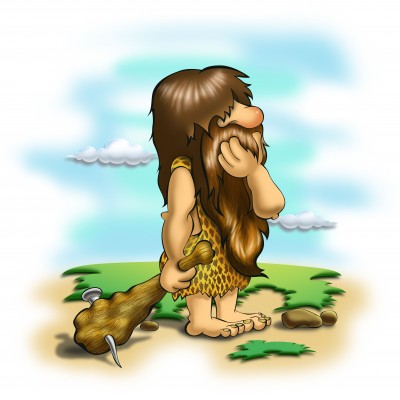
Housework Wasn't Always Hard
Back in the days of yor (I don't know what a yor is, but I
suspect it means a long, long time ago) we didn't worry too much about dirt in
our homes. In fact, dirt comprised the major makeup of our homes. We either
lived in caves with walls made, essentially, out of really tightly compressed
dirt in the form of rocks, or we lived in huts (sometimes constructed out of wet dirt in the form of mud). The major similarity between
both these options (aside from annoying drafts) is that they both have dirt
floors. Now, it should go without saying that, when your floor is made of dirt,
the last thing you're thinking of is vacuum cleaners. There's really no good
incentive to even consider inventing one.
Cleanup back in those days was really just a matter of
picking up the mammoth bones leftover from dinner and tossing them on the trash
heap outside. And there weren't too many bones to toss, come to think of it,
because you probably used most of the leftovers to make pretty useful stuff
like jewelry and needles for sewing the hides and bone framework for your huts.
Somewhere along the way, somebody got tired of walking in dirt all the time (probably a real nuisance when it rained) and decided to elevate themselves above the animals by installing a wood floor. In most cases, the spacing between planks meant most of the dirt just fell between the cracks, but not always. That prompted the invention of the broom.
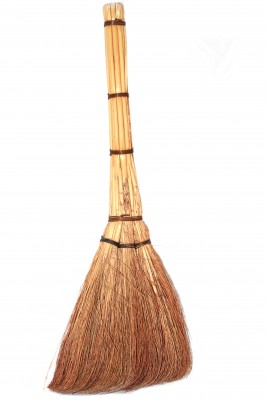
New Technology Sweeps Planet!
Now a broom isn't a major technological advancement in our
eyes, but it was pretty cool stuff back then. Just strap some hay or supple
twigs to the end of a stick, open up the front door and sweep all your cares
away! Of course, not everybody was handy enough to make their own brooms so
broom makers came into their own. One of the first jobs was born.
So now we have people who can no longer ignore their dirt
and have to clean it up and we have people who work for an hour or two a day
making brooms and selling or trading them to those people. Not a bad
arrangement. Not bad until somebody decided that walking on a cold wooden floor
was uncomfortable and decided to toss down a few pelts.
Those first pelts were soon joined by rugs. Our tootsies were warm but the workload increased. Now, cleaning was a two-part job requiring a rug or animal pelt to be taken outside and beaten of its dust and dirt followed by the usual sweeping of the wood floor while the pelt or rug was airing out. This led to the creation of rug-beaters, woven tools like big fly swatters that did a much better job of removing dirt from rugs. It also led to brushes designed to brush off the dried remnants of dirt that didn't come off just by beating the rug. And let's not forget those hardworking weavers who created the rugs. Lots of jobs born out of just one little technological advancement, the sole intent of which was convenience.

Trouble Looming on the Horizon
Though a substantial increase in workload and a boon to
those industrious people who wanted to earn a living, rugs led to the next
technological leap, the wall to wall carpet. Now I'm entirely too lazy to look
up dates and responsible parties but, if memory serves, the first people to
enjoy wall-to-wall carpeting were the filthy rich. In fact, if you weren't
royalty or a noble, you sure as heck didn't have a wall-to-wall carpet.
The wall to wall carpet created more job opportunities, but nothing major until somebody decided there had to be a better way to clean these things. Until tech took a leap forward, brooms were the only legitimate (though woefully inadequate) option. In fact, some of those royals still had their entire carpets removed from their palaces and beaten clean just like the little folk did with their tiny rugs. You can imagine how labor intensive an effort that was (lots of jobs). And then some smart guy invented the vacuum cleaner.
Vacuums suck
When the vacuum cleaner comes along, wall-to-wall carpeting
becomes an option for the masses. Up until then, rugs were the overwhelming
norm for all but the super wealthy. There were some stop-gap inventions that
opened full carpets up to more than just royalty (mechanical carpet sweepers
for example) but you didn't really find them in your average household. The
vacuum changed all that, allowing average-Joe to emulate the rich and enjoy
covering his wooden floor from wall to wall. It also added more work and
created more jobs.
Vacuum Cleaners meant that average people could now own
plush carpeting. To own it, they would need to clean it using a vacuum cleaner.
To own a vacuum cleaner they would need to have money to buy one. To have
money, they would need jobs. Of course, there were plenty jobs because other
technical advancements required people to manufacture, sell and maintain all
sorts of other things as well. Heck, you could (if so inclined) get a job as a
vacuum cleaner salesman and maybe get a discount!
Every technological "convenience" we enjoy in our modern, never-sleep world has resulted in the requirement of more work to build it, sell it and support it. Wooden floors begat broom-makers, rugs begat weavers and die makers, wall-to-wall carpeting begat more weavers and die makers and countless maids to keep the carpet clean, innovation begat the vacuum which in turn begat vacuum cleaner manufacturers, salesmen, repairmen and James Dyson.

The War is Over. The Machines Won.
Thanks to technology, the modern workday is 3-4 times what
it was when we were "primitive." In fact, the only thing we can
really be thankful for is that modern technology allows us to live longer. I
didn't say better. I said longer. Longer so that we can spend 4 times as many
hours behind our desks or at our assembly line producing more
"convenient" products that we'll have to work more hours to own. So
what have those long lives really done for us? Deprived us of valuable time
with our families and friends and shackled us into voluntary slavery to the
technology we so covet. People fear that machines will someday takeover the
world. I propose they already have.
As to what to do about it, who knows? For my part, I'm going
to log off my super expensive top-of-the-line gaming computer (which I use
almost exclusively to write stuff like this these days), get some sleep and
then drive my dogs to the dog park tomorrow for some tech-free relaxation. I'll
even turn off my Blackberry. And when the pups are done playing and the holiday
weekend has passed, I'll get back to work. Because the truck that got me to the
dog park still has payments due. The dog park was built with tax money that
they'll want more of in April. The dogs themselves both recently went to the
vet so that depleted my spare cash a bit and, on or off, there's still going to
be a bill coming in for that Blackberry at the end of the month.
Sigh.
Have a happy 4th!

